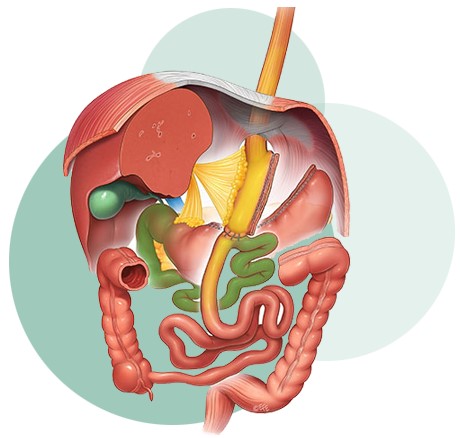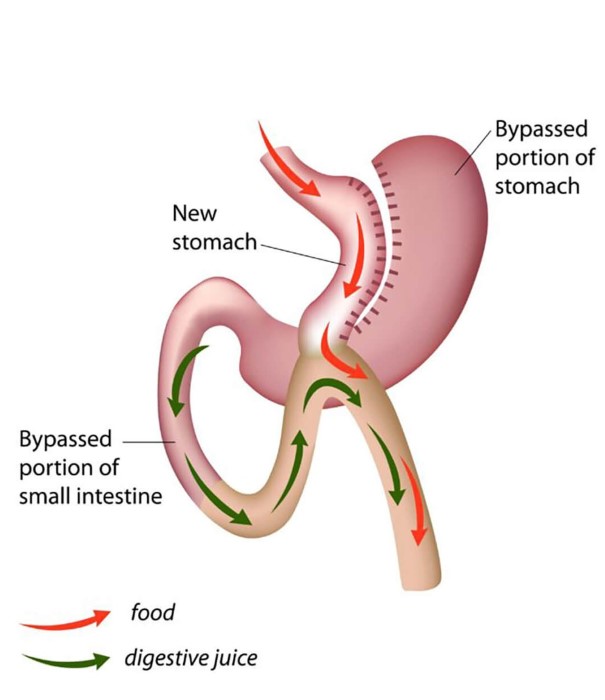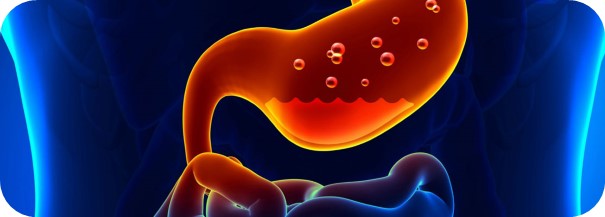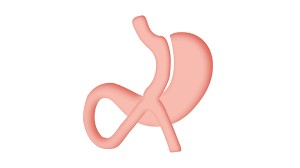










Mini gastric bypass is an effective method for obesity treatment and metabolic surgery. The method, which aims to lose weight in a controlled manner and provides this at a high rate, also prevents diseases that may occur due to weight.
Mini gastric bypass, which is one of the preferred methods because of its short recovery time, is an important treatment method in Type 2 diabetes.
The purpose of the method, which is also known as an alternative to sleeve gastrectomy surgery, is to reduce the stomach volume and give a feeling of being full all the time.
In this way, the patient provides weight control by consuming less food.
In the operation, in addition to the tube created in the stomach with small instruments, it directs the intestinal working mechanism and reduces the absorption rate of nutrients, ensuring elimination without being absorbed.
With the operation performed in a section of approximately two meters of the intestine, the tissues that provide absorption are disabled and the amount of energy mixed with the blood is reduced.
Thus, the patient usually throws out the food he eats before it mixes with the blood with digestion.
With hormonal regulation, which is the third stage of mini gastric bypass surgery, gastric stimulation is reduced to a minimum and the feeling of hunger is less felt. Thus, the patient always thinks that he is full and loses weight by reducing the amount of food he takes.

Pros and Cons of Mini Gastric Bypass
As with any surgical operation, unexpected effects can be seen. This operation, which is likely to cause the destruction of the stomach as a result of the contact of the fluid released from the liver with the stomach, may cause reflux, albeit with a small possibility.
Risks such as excessive weight loss or rapid weight gain can be seen when the policy of the doctor to manage the process is not followed in the time periods of those who have mini gastric bypass surgery. Other than those who are negative about the pros and cons of mini gastric bypass, there are cases of other diseases.
In addition, diarrhea for a few days as a result of taking watery foods after the operation is among the side effects.
Although it has disadvantages, it is necessary to comply with this post-operative nutrition program, which is an effective method and has many advantages in terms of being healthy, considering its benefits. Starting exercises two weeks after the operation is one of the methods that provides support for weight loss. In addition, avoiding sugar and fatty foods that cause disease and require surgery is the most important factor that makes the surgery successful.
 To Whom Can Mini Gastric Bypass Be Applied?
To Whom Can Mini Gastric Bypass Be Applied?
One of the people who wonder about the mini gastric bypass procedure is to whom the mini gastric bypass can be performed.
The criteria that are important in patient selection are not different from the criteria of other techniques in the field of bariatric surgery.
The patient; age, body mass index, the status of existing metabolic diseases, whether there is reflux or hernia and the health status of the small intestine are checked.
By looking at these situations, it is decided whether the procedure is suitable for the patient.
Body mass index
The patient's age and height-weight ratio are of great importance for this operation. The procedure is suitable for individuals of many age groups, from young adolescents aged 18 to advanced adults with a body structure suitable for surgery.
Very good results can be obtained in individuals with a body mass index of 35 and above in the morbidly obese and obese groups.
Metabolic Diseases
One of the considerations before the mini gastric bypass operation is whether the patient has metabolic diseases.
If there is, it is checked how severe it is.
The individual may have conditions such as advanced metabolic syndrome and Type 2 diabetes.
How is Mini Gastric Bypass done?
Losing weight under the control of a doctor will always be better for one's life. Losing weight by following the diet program and exercising for obesity patients is a very difficult and patient process. In order to cope with obesity disease, patients undergo gastric reduction surgery called mini gastric bypass.
 People with obesity face many difficulties in their daily life. Some of these challenges are:
People with obesity face many difficulties in their daily life. Some of these challenges are:
They cannot be active like the people in their circle of friends, they get tired very quickly and they feel pain in the whole body.
Many people around them make fun of and ridicule. In this case, it causes the patient to experience psychological distress. It is very likely that the patient will isolate himself and become depressed.
Since they cannot move easily, they may need help while meeting their toilet needs.
Patients who face such difficulties every day become unable to enjoy life. This can cause people to get worse and not care about their health at all. In order to prevent such situations, if the person cannot lose weight with the help of exercise and diet, mini gastric bypass surgery should be applied. With the help of this surgery, it is ensured that people lose weight and achieve a healthy life.
Approximately 200 cm in size at the beginning of the small intestine is reserved for the foods that the person eats. This section, which is separated from the small intestine, contains bile and other fluids that allow digestion and absorption to occur. With this part, the location of the exit part of the stomach is changed.